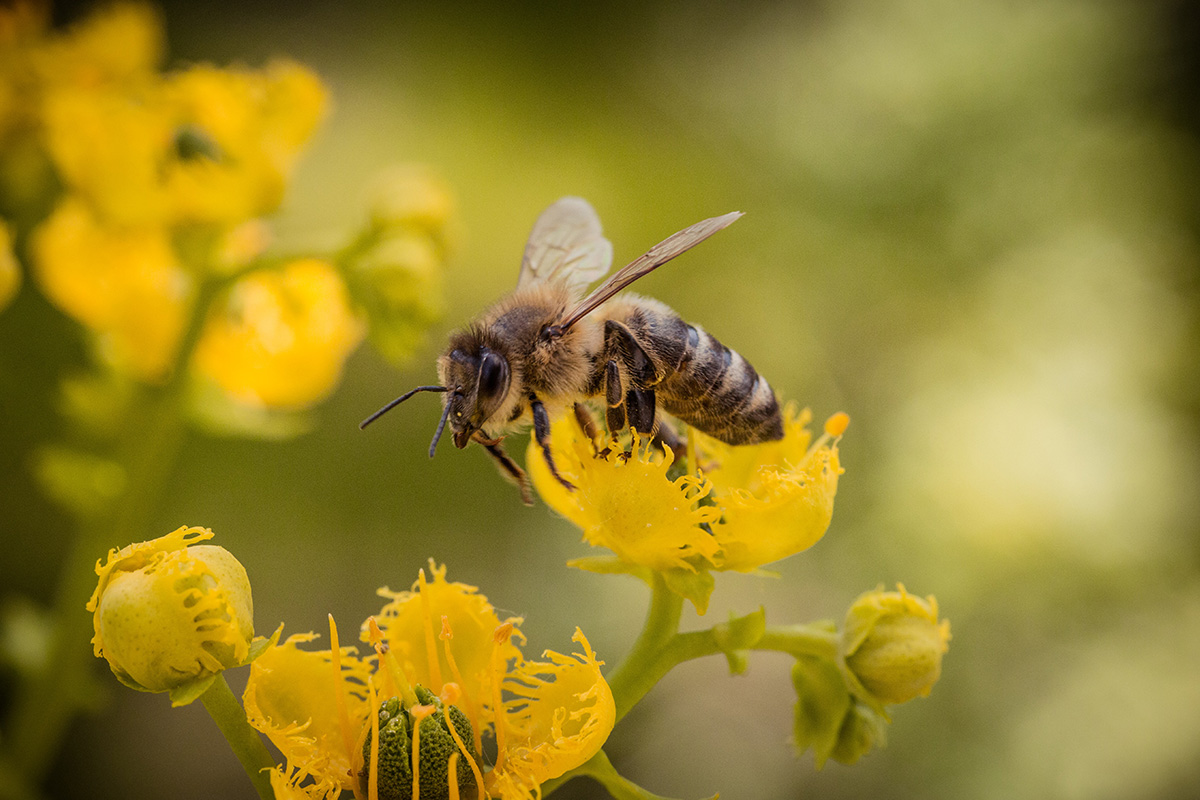Photo by Trollinho on Unsplash
Bees are the main pollinating insects and are responsible for helping more than 80% of the world’s flowering plants reproduce. And according to the USDA, “about one mouthful in three in our diet directly or indirectly benefits from honey bee pollination. Commercial production of many high-value and specialty crops like almonds and other tree nuts, berries, fruits and vegetables depend on pollination by honey bees”.1
In the winter of 2006, American beekeepers reported partial or total losses of their honey bee colonies, this phenomenon was called Colony Collapse Disorder (CCD), a significant and sudden decrease in the number of adult bees in a hive. Since then, the death of bees continues to increase, according to a survey of Bee Informed Partnership, a loss of up to 44% of bee colonies has been reported. The reasons for the losses of the bee colonies are not clear, but it has been concluded that there are several factors that negatively affect the bees, such as pests and diseases, poor nutrition, habitat loss, decreased crop diversity, and pesticides. Research suggests that pesticides (especially called neonicotinoids) can affect the immune system of bees and even impair their behavior, navigation, learning, and memory2. (You can read our blog post about “Alternatives to Pesticides for Pest Control”).
How Can We Help Protect Bees
At home
You can help from your home or with your community to protect honey and wild bees, making small changes to organic practices that will also contribute to conserve the environment and protect your health. Beyond Pesticides suggest how you can contribute your grain of sand, here we share some tips, for more detailed information visit their website.
- “Pesticide Free Zone”: Use a less toxic and pesticide-free pest control (IPM) that can affect pollinators in your garden or nearby parks.
- Build biodiversity: plant plants with colorful and attractive flowers for bees in your garden or balcony, or if you prefer, you can also make an organic garden.
- Organic products: choose organic foods and thus support good agricultural practices and those that protect honey bees and wild pollinators in their production process. Avoid products that are derived from seeds coated with systemic pesticides or neonicotinoids.
For the beekeepers:
Beescape is a partnership of the Center for Pollinator Research at Penn State University, Dickinson College, Purdue University, University of Illinois, Urbana-Champaign, University of Minnesota, and University of California, Davis. And it provides a tool for beekeepers, gardeners, producers, and land managers to assess the quality of their landscapes to support bees and wild bees, as they travel long distances to find food and water. Beescape It allows you to select a specific location and obtain information on floral resources, applied insecticides and the availability of nesting habitat for wild bees.
Learn beekeeping basics in Dallas
Round Rock Honey has a course you’ll learn many beekeeping basics such as identifying different types of bees, monitoring hive health, safety practices, and honey production. Round Rock Honey is a Texas company that produces wildflower honey, emphasizing quality over quantity in every step of the harvest.
1 https://www.ars.usda.gov/oc/br/ccd/index/
2 https://beyondpesticides.org/programs/bee-protective-pollinators-and-pesticides/what-the-science-shows

